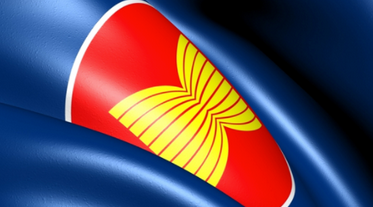KUALA LUMPUR – Malaysia will assume the Chairmanship of the Association of Southeast Asian Nations (ASEAN) in 2025 under the theme “Inclusive and Sustainable.” This significant year marks the 10th anniversary of the ASEAN Community and represents a turning point in the development of the bloc, which faces current geopolitical challenges and the need for sustainable growth.
Celebrating 10 Years of ASEAN Community
In 2025, ASEAN will reflect on a decade of community-building based on three pillars: political, economic, and social cooperation. Malaysia sees itself as having a responsibility to further promote regional unity and strengthen mutual dialogue and trust between member states. This is particularly important as ASEAN will welcome Timor-Leste as its 11th member and continue to develop its Vision for 2045.
Priorities for ASEAN Chairmanship in 2025
In 2025, Malaysia will advance the ASEAN agenda with several key priorities, including promoting shared prosperity, supporting economic integration, and enhancing regional cooperation. A particular focus will be placed on digital transformation and strengthening the digital economy to enhance the region’s competitiveness and resilience.
Prime Minister Anwar Ibrahim emphasized that Malaysia will play a leading role in digital connectivity. The country aims to develop ASEAN into a strategic hub for digital innovations, particularly by promoting the digital single market and Digital Economy Framework Agreements (DEFA) to boost intra-regional trade and reduce the digital divide between member states.
Inclusivity and Equal Opportunities as Core Objectives
A central element of Malaysia’s Chairmanship agenda is promoting inclusivity and sustainable growth. The focus is on creating equal development opportunities for all member states, especially for disadvantaged groups. ASEAN policy will aim to integrate all economies, ensuring that no group, particularly marginalized and minority communities, is left behind.
According to Tengku Datuk Seri Utama Zafrul, Malaysia’s Minister of Investment, Trade, and Industry, the inclusive approach will ensure that all populations can benefit from the progress made in development.
Economic Direction
ASEAN is currently the fifth-largest economy in the world, with a total population of 677 million people. Malaysia’s commitment to digitalization and the development of a coherent digital market is seen as a crucial foundation for the region’s economic future. The digital economy of ASEAN is expected to grow from USD 300 billion to USD 2 trillion by 2030.
The strategic plan for the ASEAN Economic Community (AEC) from 2026 to 2030 will further promote digital transformation and ensure that ASEAN remains positioned as a global competitor in the digital sector. This development will be supported by enhanced cooperation in areas such as Artificial Intelligence, cybersecurity, and cloud computing.
Geopolitical Challenges
In terms of regional and geopolitical challenges, Malaysia is focused on strengthening cooperation with key global partners such as China, Japan, and the United States. The ASEAN Chairmanship will particularly focus on security issues affecting the region, such as the crisis in Myanmar and tensions in the South China Sea.
Additionally, Malaysia aims to reinforce ASEAN’s central role in an increasingly multipolar world and advocate for the principles of collaboration, openness, and peaceful coexistence. Promoting ASEAN as a model for international cooperation and dialogue is seen as essential to maintaining regional peace and stability.
Vision 2045 and Sustainable Development
The ASEAN Community Vision 2045, which will continue after the AEC 2025, forms the long-term foundation for ASEAN’s development. Malaysia is committed to implementing this vision over the coming years with a clear strategy and five-year planning periods to adapt to dynamic economic and technological changes.
Thus, the Malaysian Chairmanship will mark a significant step toward an inclusive, sustainable, and future-oriented ASEAN Community, built on the principles of solidarity, shared responsibility, and a people-centered approach. (zai)

